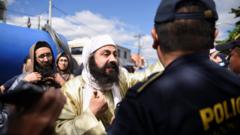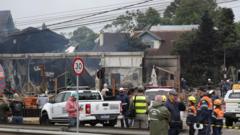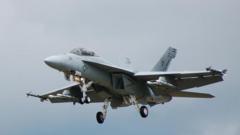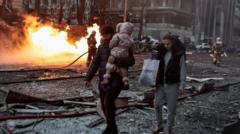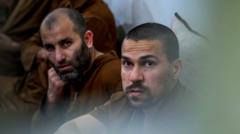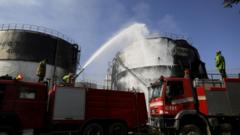BBC efforts to locate a young girl captured in a harrowing photograph of detainees in Gaza lead to the discovery of Julia Abu Warda, who, despite witnessing unimaginable trauma and loss, remains with her family.
Unveiling Julia: The Story of a Young Girl Surviving the Gaza Conflict
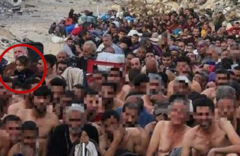
Unveiling Julia: The Story of a Young Girl Surviving the Gaza Conflict
Amidst the chaos of war, a photograph of a little girl prompts a search for her well-being, revealing the personal toll of the ongoing conflict in Gaza.
In a haunting photograph taken amidst the turmoil of Gaza, a little girl can be seen among a group of detained men, her presence raising urgent questions about her well-being. The image, first shared by a journalist connected with the Israel Defence Forces, depicts men stripped to their underwear, reportedly enduring a military check while the child gazes away from the camera — a small figure in a scene of agony.
The girl, who appears to be merely a child here, is Julia Abu Warda, now known to be three years old. Within days of the photograph's emergence, BBC Arabic collaborated with local contacts to trace her whereabouts. Despite Israel's restrictions on independent media in Gaza, an appeal to aid agencies bore fruit, leading BBC journalists to find Julia and her family in Gaza City, where they had sought refuge after being displaced.
Interviewing her father, Mohammed, it became evident that Julia's idyllic life had been shattered. The family had been uprooted multiple times in a span of a few weeks due to escalating violence. On the day the infamous photo was taken, an Israeli drone had called for evacuations, prompting frantic movements amid threats overhead. Mohammed recalls the chaos when he and Julia were separated from the rest of their family, navigating a landscape marked by destruction and desperation.
While the photograph captured Julia's calmness, her father's recollection reveals an underlying trauma. Though unharmed physically, she bore witness to the tragic loss of her seven-year-old cousin, Yahya, who was killed in an Israeli airstrike just weeks prior. The innocent act of playing is replaced by a harrowing understanding of the violence around her as she now associates aircraft with the threat of danger.
According to UNICEF, the statistics are grim — approximately 14,000 children are reported dead due to the ongoing conflict, highlighting the devastating reality in the region. Julia’s anguish mirrors that of potentially millions of children caught in the crossfire of a battle they did not instigate but are suffering through nonetheless.
As Julia's story unfolds, it brings light not only to her plight but to the broader humanitarian crisis affecting families throughout Gaza. While she remains safe with her loved ones, the question looms larger: how does one heal from such profound trauma? The dichotomy of her survival, juxtaposed with the chaos of her environment, paints a chilling portrait of the complexities of innocence amid war.
Through the combined efforts of journalists and aid organizations, Julia's narrative serves as a poignant reminder of the individual lives impacted by conflict and the urgency to foster peace and protection for the most vulnerable.

